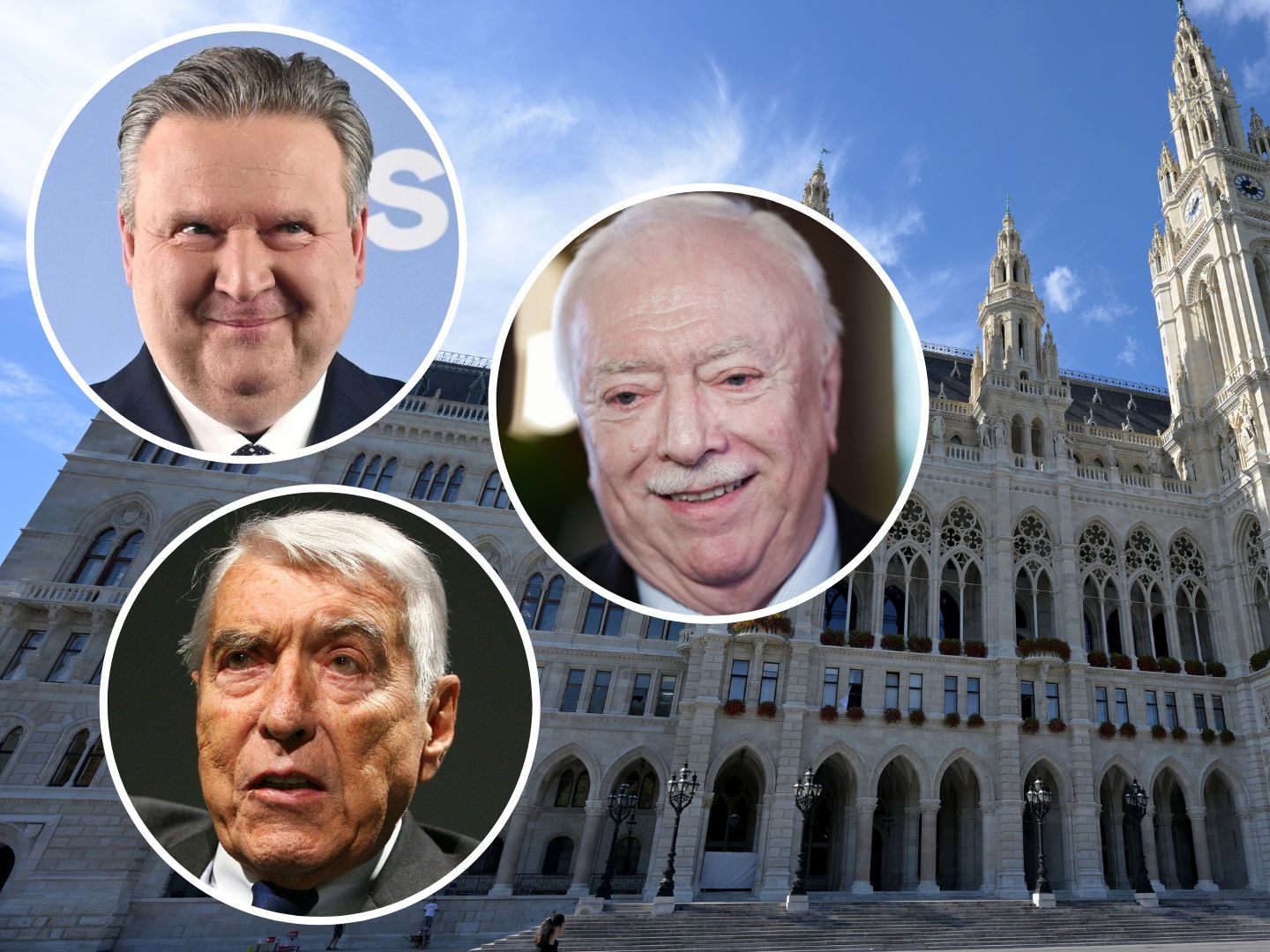Vienna Has Been in Red Hands Since 1945: These Are the Eight Previous Mayors

In Vienna, social democratic mayors have governed exclusively since 1945, with the exception of a brief communist interlude lasting a few days immediately after the end of the war. The current officeholder, Michael Ludwig, has been in office since May 2018. The longest-serving city leader to date was his predecessor Michael Häupl, who held this position for exactly 23 years, six months, and 18 days.
Incumbent Ludwig is the eighth mayor elected by the city council since World War II. Before him were Theodor Körner (1945 to 1951), Franz Jonas (1951 to 1965), Bruno Marek (1965 to 1970), Felix Slavik (1970 to 1973), Leopold Gratz (1973 to 1984), Helmut Zilk (1984 to 1994), and Michael Häupl (1994 to 2018). Three of them moved from Vienna's city hall to top positions in the federal government: Körner and Jonas became Federal Presidents, Gratz Foreign Minister.
The Vienna Mayors Since 1945 in Brief Portraits
THEODOR KÖRNER (born 1873 in Uj Szönyi, Hungary, died 1957 in Vienna): When he provisionally took over the office of Vienna's mayor on April 17, 1945 (replacing the communist Rudolf Prikryl nominated by the resistance group O5), Körner was already in his 73rd year. On February 14, 1946, Körner was officially elected mayor. He served for six years until he succeeded the deceased Karl Renner as Federal President in May 1951.
FRANZ JONAS (born 1899 in Floridsdorf, which was not yet incorporated at the time, died 1974 in Vienna): The trained typesetter and printer earned his stripes as district chairman of Floridsdorf and city councilor for nutritional affairs. Elected mayor in June 1951, he held this office for 14 years. He won three elections for the SPÖ. Jonas also moved from city hall to the Hofburg in 1965.
BRUNO MAREK (born 1900, died 1991 in Vienna): The former head of the Vienna Trade Fair AG had already been president of the Vienna State Parliament for 16 years when he became mayor in June 1965. A standout event of his term was the fundamental decision by the city council in 1968 to build the subway and the actual start of construction the following year. He resigned from office in December 1970 due to age reasons.
FELIX SLAVIK (born 1912, died 1980 in Vienna): He had a "short stint" at the town hall from 1970 to 1973. Slavik failed in the planned development of the Sternwartepark in Währing. The public referendum he initiated - the first of its kind and still without a legal basis - resulted in over 57 percent "No" votes. In June 1973, he resigned from his position as mayor after just under two and a half years.
LEOPOLD GRATZ (born 1929, died 2006 in Vienna): The lawyer with a career in the SPÖ party was Minister of Education in 1970, and from 1971, the head of the parliamentary club in the National Council. As mayor, he had to endure the collapse of the Reichsbrücke in 1976. However, his term also saw the start of the redesign of the Danube area and the completion of the basic subway network. In September 1984, Gratz exchanged the mayor's seat for that of the Foreign Minister in the Sinowatz cabinet.
HELMUT ZILK (born 1927, died 2008 in Vienna): Contrary to all expectations, the former teacher, journalist, ORF program director, ombudsman, city councilor for culture, and Minister of Education was chosen as the new mayor in 1984. With his characteristic vehemence, he dedicated himself to the affairs of individual citizens. Nevertheless, his term saw the loss of the absolute SPÖ majority. In December 1993, Zilk became a victim of an attack from the first series of letter bombs.
MICHAEL HÄUPL (born 1949 in Altlengbach, Lower Austria): Already the head of the Vienna SPÖ since 1993, the biologist succeeded Zilk as mayor in November 1994. After losing the absolute majority of mandates in the first election of his term, Häupl regained it in 2001 and defended it in 2005. In 2010, it was lost again, after which Häupl sealed Austria's first red-green coalition with the now-legendary phrase "Bring the spritz wine." It was renewed in 2015. In May 2018, the eloquent social democrat turned his back on the town hall and thus also on day-to-day politics.
MICHAEL LUDWIG (born 1961 in Vienna): The political scientist and historian is running for election for the second time on April 27, after the election, which was originally scheduled for the fall, was brought forward by the coalition parties SPÖ and NEOS. Ludwig has been active in politics since 1994, initially as a district councilor. In 2007, the Floridsdorfer became part of the city government team when he took over the housing responsibilities from the later Chancellor Werner Faymann. In March 2009, Ludwig also rose to the position of deputy mayor. However, he had to relinquish this title in 2010 during the first red-green coalition to the then-new city councilor Maria Vassilakou (Greens). At the beginning of 2018, Ludwig won a contested vote against the then-acting parliamentary club chairman Andreas Schieder for the leadership of the Vienna SPÖ, and a few months later, he was elected mayor of Vienna. In the last election in 2020, he achieved slight gains for the SPÖ (plus 2.03 percentage points) and made the Social Democrats the clear strongest force with 41.62 percent. He brought the NEOS on board as a coalition partner. The self-proclaimed "progress coalition" held throughout the entire legislative period.
(APA/Red)
This article has been automatically translated, read the original article here.





